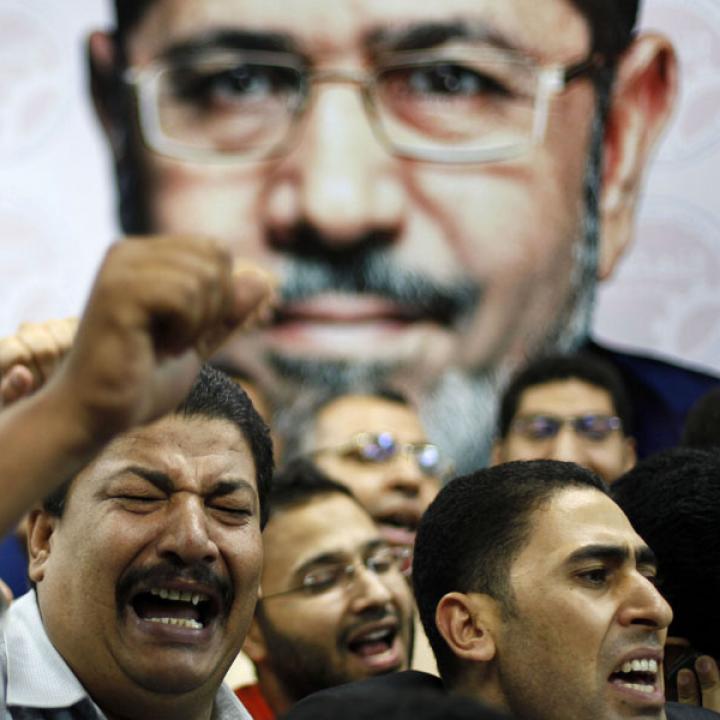

Although Washington has long sought to moderate the Brotherhood's behavior through quiet diplomacy, Morsi's inflammatory political appointments suggest that this approach has failed.
Egyptian president Muhammad Morsi's latest round of gubernatorial appointments, announced Sunday night, demonstrates his preference for consolidating his base rather than pursuing genuine dialogue with his critics. Although Morsi has the legal authority to appoint whomever he wants, the announcement's timing threatens to inflame an increasingly violent domestic political situation. Moreover, the appointment of an al-Gamaa al-Islamiyah (GI) member to govern Luxor is inimical to U.S. interests, and the Obama administration should respond accordingly.
Morsi's move follows a familiar pattern -- once again, he expanded the Muslim Brotherhood's power while also appointing some military officers to maintain his tenuous partnership with the armed forces. Seven of the seventeen newly appointed governors are Muslim Brothers (bringing the group's total to ten of twenty-seven), and five are army generals.
The appointment of GI member Adel al-Khayat in Luxor, however, represents an especially alarming break into more radical territory. GI is a U.S.-designated terrorist organization, and Luxor was the scene of its infamous 1997 attack on tourists, in which sixty-two people were killed outside the Temple of Hatshepsut. The fact that Morsi now counts the group as a key member of his governing coalition indicates a hostile tilt in Egyptian policy. GI continues to demand the liberation of its spiritual leader, the "Blind Sheikh" Omar Abdul Rahman, who was convicted in 1995 for encouraging major attacks on American civilian targets and is serving a life sentence in North Carolina. GI was also a primary instigator of the September 11, 2012, demonstrations that culminated in an attack on the U.S. embassy in Cairo.
The timing of the appointments is alarming as well. During the past month, Egypt's loosely organized non-Islamist opposition has highlighted Morsi's noninclusive governing style through the Tamarod ("rebellion") petition campaign, which claims to have collected over 13 million signatures in favor of withdrawing confidence from Morsi and demanding early presidential elections. The opposition is also planning nationwide protests on June 30, the anniversary of Morsi's inauguration; clashes are likely, especially if the Brotherhood and GI mobilize to defend Morsi as expected. Indeed, significant disruptions are already occurring: on Sunday, fifty-seven people were injured during clashes between Muslim Brothers and oppositionists in Faiyum, and on Monday, protesters in the Nile Delta provinces of Gharbiyah and Menoufiya responded to the appointment of Brotherhood governors by blocking roads and occupying the governorate office, respectively.
The Obama administration has long sought to moderate Morsi and the Brotherhood's behavior through quiet diplomacy, but Cairo's latest moves suggest that this approach has failed. Therefore, Washington should distance itself from the Morsi government via strong public statements and encourage Western allies to do the same. Although this more assertive approach is unlikely to yield immediate reversals given the Brotherhood's apparent commitment to noninclusive rule, it would serve two important purposes. First, sharp U.S. criticism would force Cairo to rethink appointing GI members in the future, since the Brotherhood has no interest in creating a crisis with Washington at a time of mounting domestic challenges. Second, by criticizing Morsi's moves in public, the Obama administration could begin combatting the increasingly prevalent view in Egypt that Washington is backing the Brotherhood to the hilt. Otherwise, such perceptions could make the United States a secondary target of the June 30 protests.
Eric Trager is a Next Generation fellow at The Washington Institute.



